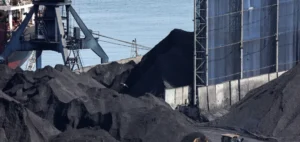Since Wednesday, an unprecedented mobilization has brought together around 500 miners in Ankara Province, Turkey. These workers are occupying the underground galleries of a coal mine in Çayirhan to voice their opposition to a privatization project. The site, which also includes a thermal power plant, is at the center of concerns for unions and miners alike.
Challenging working conditions
Talih Kocabiyik, a local representative of the Maden-Is union, expressed the workers’ concerns about their future. “The miners are worried about their jobs, workplace safety, and working conditions,” he stated. These fears are part of a broader national context marked by tragic precedents in the mining sector.
According to the protesters, privatization would lead to increased production at the expense of employee safety. Some miners, secluded 300 meters underground, have threatened to go on a hunger strike if their demands are not addressed. “We are trying to defend our livelihood. We will go all the way,” declared Osman Kazan, one of the miners involved.
A mining sector marred by tragedies
This protest reflects widespread distrust. In 2014, the Soma mine disaster claimed the lives of 301 miners. This tragedy, occurring at a site privatized nine years earlier, had sparked severe criticism over the management of safety in privatized mines.
Strong political support
In response to the protest, opposition figures have visited the site to express their support. Özgür Özel, leader of the Republican People’s Party (CHP, social-democrat), and Mansur Yavas, CHP Mayor of Ankara, denounced the consequences of privatization. “After privatization, there are layoffs, production pressures, and safety concerns at work,” Özel said.
The Turkish government, still heavily reliant on coal in its energy mix, has yet to publicly address the demands of the Çayirhan miners. However, the situation could escalate if hunger strike threats are realized.






















